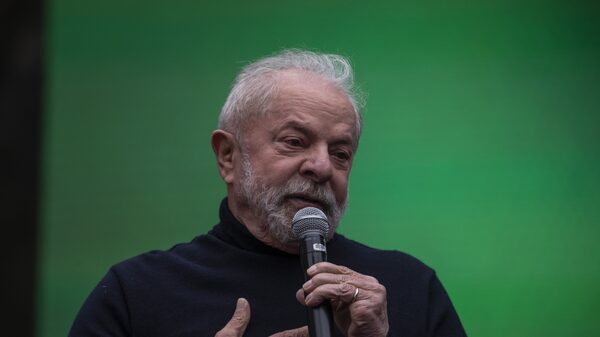Bloomberg — Brazil’s presidential front-runner Luiz Inacio Lula da Silva’s campaign is growing concerned about winning over the middle class, a key constituency in Brazil’s election, as his lead in polls stalls just weeks ahead of the vote, according to three people close to the candidate.
The segment of middle-income earners is seen by Lula’s team as one of the biggest obstacles to boosting voter intentions that have stagnated around 43%-45% this month, the people said, requesting anonymity because the discussion isn’t public. Incumbent Jair Bolsonaro currently has more backing among those workers, according to a DataFolha survey released on August 18.
Brazil’s middle class, which represents about a quarter of the population, is an important electoral prize that propelled Lula to his first presidential victory in 2002. Those voters later turned their backs on the former head of state and his Workers’ Party as the political left faced a raft of corruption accusations. More recently, that segment has been the main beneficiary of Bolsonaro’s tax cuts.
Lula, meanwhile, has prioritized poorer groups, turning attention away from the middle class, according to Deysi Cioccari, a political science professor at the Pontifical Catholic University of São Paulo.
Some advisers are pushing Lula to strike a more pragmatic tone in his speeches, pivoting from his leftist base of support and broadening his appeal on the economy in efforts to attract centrist and middle class voters, according two campaign coordinators. Their bet is that many in that segment feel alienated by Bolsonaro’s conservative views and aggressive rhetoric.
On Thursday evening, Lula will give a 40-minute interview on Globo TV’s Jornal Nacional, which is the country’s most-watched television show. Earlier this week, Bolsonaro sought to reach out to more Brazilians and lure moderate votes through his appearance on the program.
Tax exemptions
Brazil’s middle class earns between 1,350 reais ($263) and 9,000 reais per month and spends about 20% of its income on health and education, according to the Institute of Applied Economics, a state-backed research agency known as Ipea.
While they have been pummeled by high inflation and soaring interest rates, Bolsonaro can tout relief from tax cuts on fuels and utilities which drove the biggest mid-month consumer price drop on record, as well as the end of levies on goods including video games and skateboards.
With about five weeks to go before the October 2 vote, Lula’s plans to win over the middle class are not yet clear.
The former labor union leader has pledged to simplify the tax system to assure the rich contribute more and the poor pay less. Under Lula’s proposal, Brazilians with wages below 5,000 reais will have an income tax exemption, though he has not detailed benefits for those who earn slightly more.

Lula acted early to reach out to moderates by tapping Geraldo Alckmin as his running mate. Alckmin, a centrist politician, is a former São Paulo governor and Lula’s old election adversary.
Still, there are growing indications of middle class unease with Lula. Roughly 41% of Brazilians who earn between 2,400 reais and 6,000 reais back Bolsonaro, compared to 38% for the former president, according to the DataFolha survey.
Among voters who earn 6,000 reais to 12,000 reais, the difference is even larger, at 47% for the incumbent and 34% for his leftist rival. Overall, Lula would win 47% of first round votes, versus 32% for Bolsonaro, the poll showed.
--With assistance from Bruna Lessa, Maria Eloisa Capurro and Isadora Calumby.
Read more at Bloomberg News




